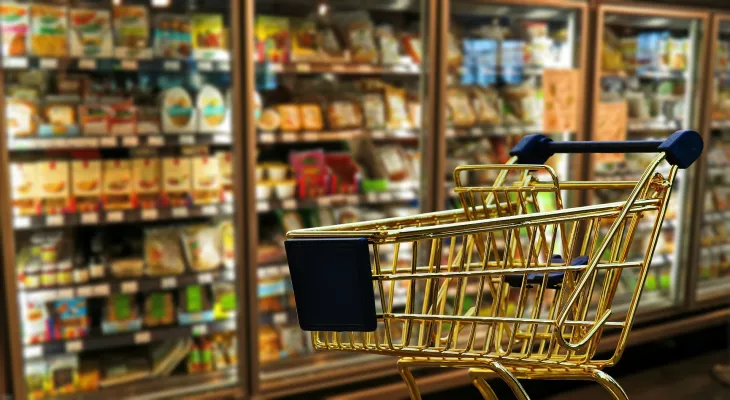Search here
Newspaper
Search here

Arab Canada News
News

Published: February 23, 2022
Sherry Morgan, a spokesperson for Frito-Lay, said in an email: "Our business has faced unprecedented pressures from rising costs of items including ingredients, packaging, and transportation."
One of Canada's largest food manufacturers has stopped shipments to the country's largest grocery chain in a stark example of how inflation is impacting the food industry and creating a gap between some retailers and suppliers.
The dispute revolves around prices between Frito-Lay Canada and Loblaw Companies Ltd., as the manufacturer of brands such as Cheetos, Doritos, Lays, Ruffles, and Sunchips seeks to offset rising costs.
This situation has led to the chips and snacks section in many Loblaw stores being less stocked than usual or stocked with retailer brands, such as President’s Choice and No Name.
The spokesperson for Frito-Lay confirmed that there is a "temporary disruption" with one customer.
She said in an email: "Our business has faced unprecedented pressures from rising material costs including ingredients, packaging, and transportation."
"To help offset these pressures on our Canadian operations... we have made price adjustments that are consistent across the market."
Catherine Thomas, a spokesperson for Loblaw, said, "When suppliers request higher costs, we conduct a detailed review to ensure they are appropriate." "This can lead to difficult conversations and, in extreme cases, suppliers not shipping products to us."
The dispute between Frito-Lay and Loblaw reveals deep tensions in the Canadian food industry, which many experts say could worsen as supply chain challenges persist and inflation continues.
Some argue that grocery sellers are simply trying to keep sticker prices low and prevent suppliers from using inflation to justify unreasonable price increases.
Others suggest that grocers are using their market power to bully suppliers and pad their bottom-line profits.
Michael Gradeon, CEO of Food, Health, and Consumer Products in Canada, said: "It's difficult to move to a confrontational relationship." "Frustration levels are increasing."
He said the increase in wholesale prices requested by some suppliers from retailers will help mitigate current inflation but will not fully compensate for the high costs.
Gradeon said the final price consumers pay in stores is set by grocery retailers - not food manufacturers.
However, retail industry advocates say that food manufacturers, in some cases, seek price increases beyond inflation.
Michelle Wasilin, a spokesperson for the Retail Council of Canada, said the industry group, which represents Loblaw, has been contacted by large and small grocery retailers about a flood of new price increases from vendors in January.
She said: "This follows an already concerning number of increases in the previous quarter." "In many cases, the increases are unprecedented and far exceed typical food price inflation levels."
Meanwhile, Statistics Canada said last week that food prices rose by 6.5 percent in January, the largest annual jump in grocery bills in over a decade and higher than the overall annual inflation rate of 5.1 percent.
It is unclear how a loss of sales at Loblaw, which includes traditional chains such as Zehrs, Atlantic Superstore, Provigo, and discount stores No Frills and Maxi, might affect Frito-Lay.
The company’s products are made in Canada, using Canadian potatoes grown largely by local farmers. Experts say a long-term sales decline could eventually harm local producers.
But experts also say brand loyalty will work in favor of the chip maker.
Joel Grégoire, assistant director of Canada Food and Drink at Mintel Market Research, said: "Frito-Lay is betting that consumer loyalty to their brands gives them leverage to make this move."
However, cutting supplies from Loblaw, which has the largest share of grocery sales in Canada, is also risky for the food manufacturer, he said.
He added, "Not fulfilling orders to the largest grocery retailer in Canada will undoubtedly have a significant short-term impact on Frito-Lay sales."
On a broader scale, he said the dispute seems to be a symbol of a wider battle over price hikes between grocers and manufacturers.
He said: "This tension is not new, but this move by Frito-Lay carries big risks." "This is a battle to maintain margins amid rising costs."
In fact, food expert Sylvain Charlebois said the friction between Frito-Lay and Loblaw is "the tip of the iceberg."
He said hostility between retailers and manufacturers may worsen in the coming months.
Charlebois, a professor of food distribution and policy at Dalhousie University, said it’s not just about potato chips. "We will see this in other food categories like bakery and dairy products as well."
Comments